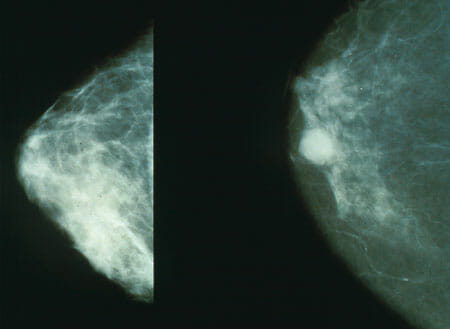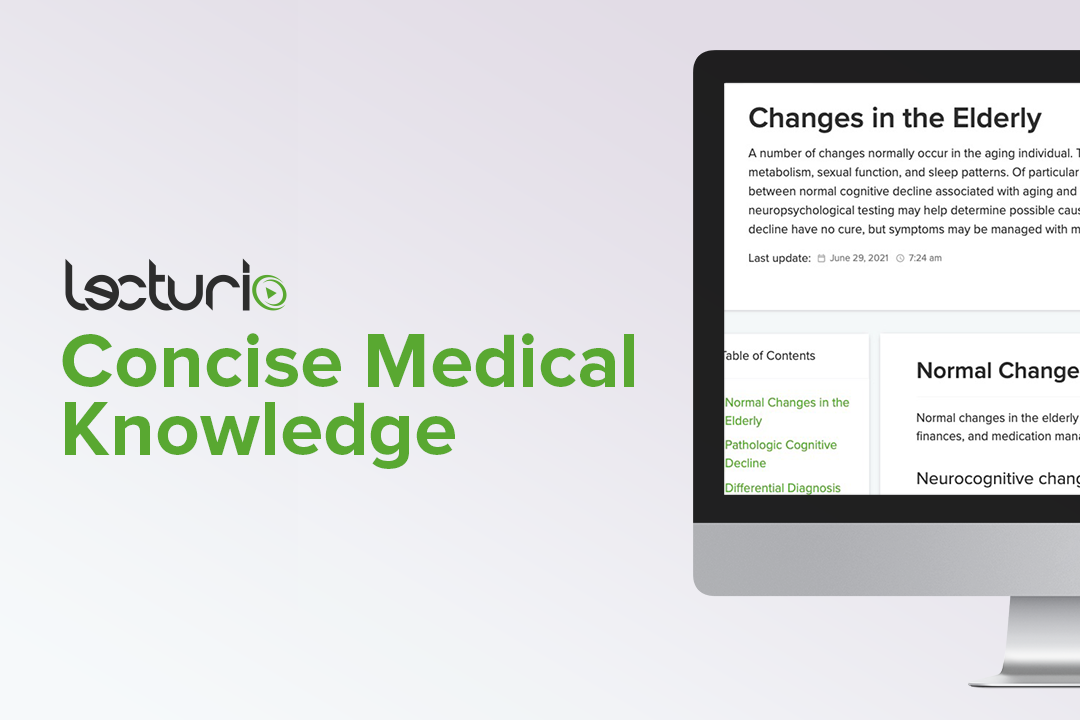Playlist
Show Playlist
Hide Playlist
Mild Cognitive Impairment
-
Slides Introduction to Dementing Diseases.pdf
-
Download Lecture Overview
00:00 So what is mild cognitive impairment? This earliest form of cognitive dysfunction associated with dementia. Well, in terms of a definition, mild cognitive impairment or MCI is an early stage of memory loss or other cognitive abilities such as language or visual-spatial perception in individuals who maintain the ability to independently perform most of their activities of daily living. Most of these patients are working, they are socially engaged, they have cognitive dysfunction but it has not impaired their daily function. Mild cognitive impairment is an intermediate category in which the severity of the cognitive change appears worse than expected for normal aging, so it's not normal aging but does not meet the criteria for dementia. So when we think about MCI, we divide it into 3 categories. There's amnestic MCI, non-amnestic MCI, and multi-domain MCI. And this is important because the risk of developing subsequent dementia varies for these 3 domains and the type of dementia the patients may develop is different. So let's walk through the steps we take when evaluating a patient with MCI and understanding their risk of subsequent dementia and type of dementia. MCI is a disorder characterized by cognitive complaints. So we see that cognitive complaints are out of proportion to age, the patients are not frankly demented, there is non-impairment of their daily function. We can see cognitive decline that fits those 4 A's; amnesia, agnosia, apraxia, and aphasias. Those are the complaints we hear from patients. And the patient otherwise has essentially normal function. When we're evaluating a patient for these complaints, our first question is "Is the MCI impairing memory? Is there memory impairment?" In patients that do have prominent memory impairment, short-term memory loss, difficulty remembering dates or appointments or names or where their keys are or those sorts of things, that fits a category of amnestic MCI. Here, memory is impaired only, there are not other cognitive domains that are affected and in patients where there is memory-only impairment, this is amnestic MCI, the single domain where there are other cognitive impairments that is termed amnestic MCI multi-domain, really describing the number of cognitive domains that are affected. In patients that do not have memory impairment related to their MCI, that's non-amnestic MCI. And again, we can categorize that as a single non-memory domain that's affected or multi-domain. Categorizing those into non-amnestic MCI of single domain and non-amnestic MCI multi-domain type. So how is this important? Why do we categorize MCI in this way? Well, it can help us to break the risk of advanced dementia and the type of dementia the patient may develop. For patients with amnestic MCI with only memory impairments, single memory domain type, memory is the main modality that is affected and those patients are at high risk of subsequent development of Alzheimer's disease. We counsel those patients, we want to treat those patients, and prevent progression to Alzheimer's disease. In patients with amnestic MCI of the multi-domain type, memory is affected as well as other cognitive dysfunction; apraxia, agnosia, aphasia, other cognitive dysfunction. And those patients are at risk for Alzheimer's disease as well as vascular dementia, we need to think about risk of advanced vascular dementia in those patients and modify risk accordingly. In patients with the non-amnestic MCI either single or multi-domain, we worry about progression to alternative forms of dementia; Frontotemporal dementia, Lewy body dementia, Parkinson's disease dementia, as well as Alzheimer's dementia and we look for other findings that may support those diagnoses.
About the Lecture
The lecture Mild Cognitive Impairment by Roy Strowd, MD is from the course Introduction to Dementing Diseases.
Included Quiz Questions
Relative to dementia and normal aging, where does the degree of impairment in a diagnosis of mild cognitive impairment (MCI) stand?
- The degree of cognitive impairment in MCI is more severe than in normal aging but not as severe as in dementia.
- The degree of cognitive impairment in MCI is more severe than in dementia and normal aging.
- The degree of cognitive impairment in MCI is less severe than in both dementia and normal aging.
- The degree of cognitive impairment in MCI is more severe than in dementia but not as severe as in normal aging.
What are the 3 categories into which a diagnosis of mild cognitive impairment can fall?
- Amnestic, non-amnestic, multi-domain
- Single-domain, multi-domain, amnesia-predominant
- Apraxic, aphasic, anhedonic
- Manic, depressive, cyclothymic
- Hyperactive, hypoactive, mixed
Why is it important for a provider to categorize a patient's mild cognitive impairment into one of three categories?
- It stratifies the risk of progression to various forms of dementia.
- Patients take comfort in understanding their disease more thoroughly.
- It can influence which medication to prescribe the patient.
- It helps the family decide what kind of nursing home the patient should go to.
Customer reviews
5,0 of 5 stars
| 5 Stars |
|
5 |
| 4 Stars |
|
0 |
| 3 Stars |
|
0 |
| 2 Stars |
|
0 |
| 1 Star |
|
0 |





